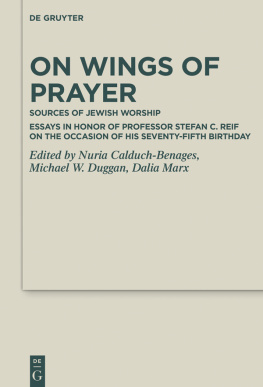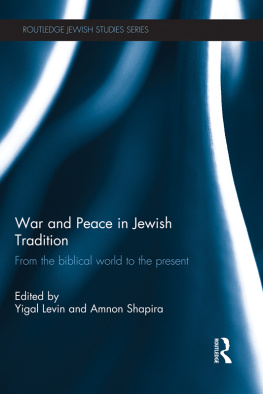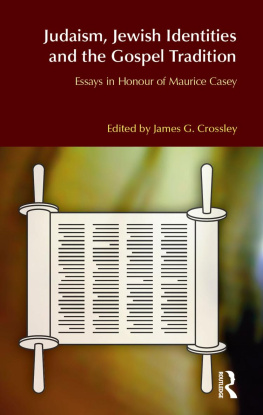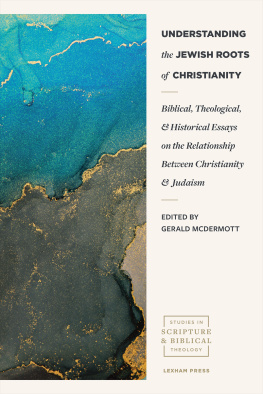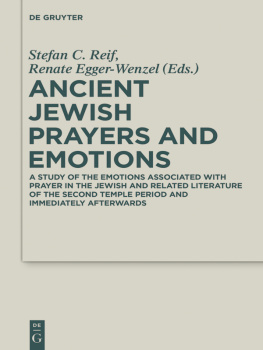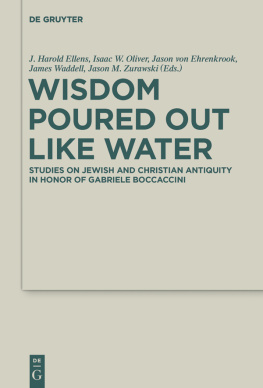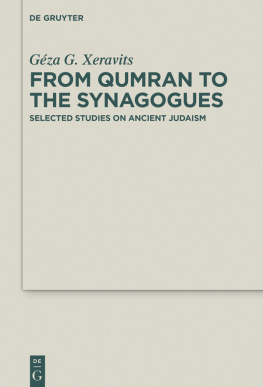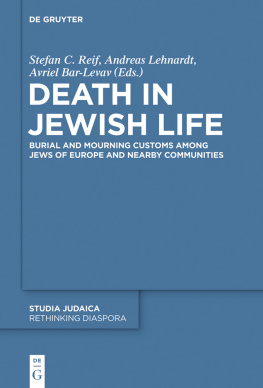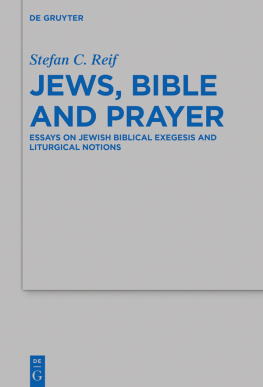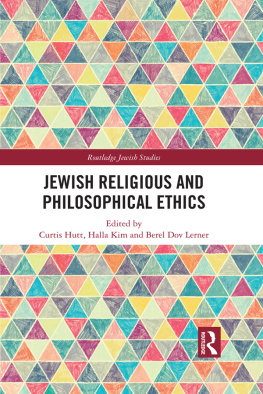Table of Contents
Guide

On Wings of Prayer
Deuterocanonical and Cognate Literature Studies

Edited by
Friedrich V. Reiterer, Beate Ego,
Tobias Nicklas, and Kristin de Troyer
Volume 44
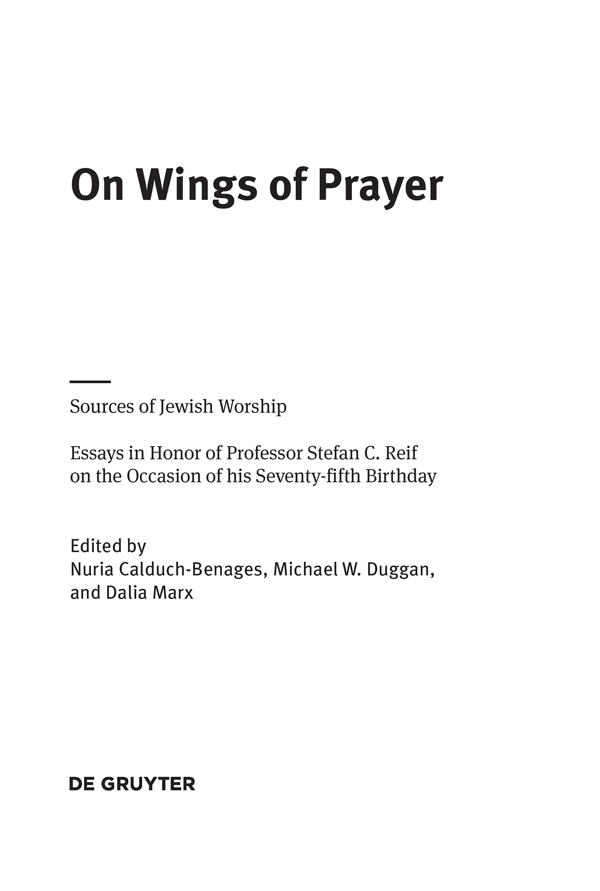
ISBN 978-3-11-062995-8
e-ISBN (PDF) 978-3-11-063028-2
e-ISBN (EPUB) 978-3-11-063072-5
ISSN 1865-1666
Library of Congress Control Number: 2019943433
Bibliographic information published by the Deutsche Nationalbibliothek
The Deutsche Nationalbibliothek lists this publication in the Deutsche Nationalbibliografie; detailed bibliographic data are available on the Internet at http://dnb.dnb.de.
2019 Walter de Gruyter GmbH, Berlin/Boston
www.degruyter.com
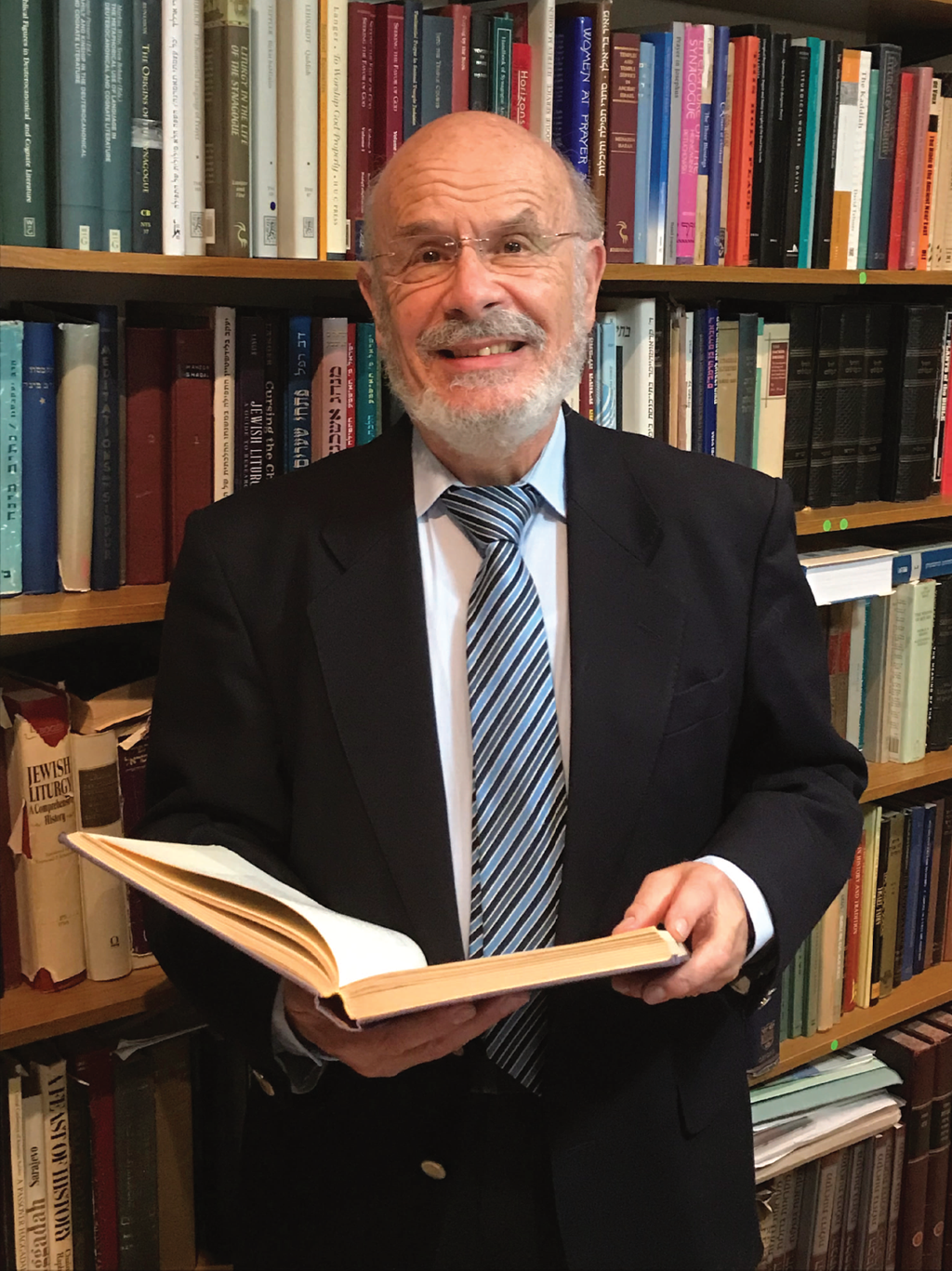
Stefan C. Reif
Preface
Through an unparalleled combination of scholarly acumen and administrative ingenuity, Professor Stefan Reif effected an awakening in Genizah studies from lingering dormancy in the wake of the nineteenth century to enduring vibrancy at the dawn of twenty-first century and beyond. The vitality for this transformation originated in the infectious energy that Prof. Reif brought to his work daily over the course of 33 years. In March of 1973 he was appointed as an assistant under-librarian tasked with sorting out the contents of the Taylor-Schechter collection of Cairo Genizah materials at Cambridge University. In March of 2006, he retired as the founding Director of Taylor-Schechter Genizah Research Unit. The transformation he brought to Genizah research over this time-span is reflected in his professional advancement as he was elected to a Fellowship of St. Johns College (1998), appointed a professor of Medieval Hebrew Studies in the Faculty of Oriental Studies (1998), and admitted to the Litt. D. degree of the University of Cambridge (2002). A decade later, the University of Haifa recognized his accomplishments by awarding him a Ph.D honoris causa (2014).
Stefan Reif is a strategist who generated a whirlwind of activity that transposed 190,000 Genizah fragments from dusty storage boxes into a world-class data base that receives hundreds of hits per day. He is a visionary who surveyed ancient scraps in cardboard containers and foresaw a new era of Jewish studies that would expand education in the humanities to benefit the world at large. To accomplish this task, he became a model of multitasking that erased partitions between academia and enterprise. He was an archivist, librarian, scholar, author, editor, teacher, mentor, publicist, fundraiser, and office manager all rolled into one. His expertise in medieval Hebrew and Jewish studies combined with his work ethic to attract industrious research assistants, whom he mentored to work on the fragments. He drew accomplished scholars to the Taylor-Schechter Unit for their sabbatical studies and saw to the publication of their monographs. For three decades, Stefans wife Shulie, of blessed memory, demonstrated unstinting devotion at the office as she undertook a wide spectrum of tasks that included cataloguing the fragments and reviewing Stefans works for publication. She and Stefan extended the hospitality of their home to visitors and colleagues at the Taylor-Schechter Genizah Unit.
In Stefan Reif, the fragments had an ambassador who shaped the Taylor-Schechter Unit into an environment in which leaders and citizens of our contemporary global village could encounter the medieval Jewish community in Cairo. Stefan welcomed to the Unit an array of dignitaries including Prince Philip of the U.K., King Juan Carlos and Queen Sofia of Spain, Mr. Ezer Weizman, the President of Israel, Lord Coggan, the former Archbishop of Canterbury and the Chief Rabbi of the U.K., Sir Jonathan Sacks. Stefan facilitated access for film crews from the American NBC network and the BBC to produce specials on the Genizah collection. His numerous radio and television interviews spread the word about the collection across the world. Twice yearly from 1981 until 2006 he published the newsletter, Genizah Fragments , which chronicled the exceptional pace at which the Genizah Unit developed and captured international attention.
Nevertheless, Prof. Reifs success in innovative librarianship serves primarily as background for appreciating his prodigious scholarly output. Shortly after his arrival at the library, he published the Guide to the Taylor-Schechter Genizah Collection which set the stage for his developing and supervising the Cambridge University Library Genizah Series , to which he also contributed as an author and editor. He complemented such technical works with a fine history of the Genizah collection at Cambridge that reached a wide readership. His publications on Hebrew and Judaism in the medieval era provide rich interpretations of the rabbinic material from the Cairo genizah. His book, Judaism and Hebrew Prayer: New Perspectives on Jewish Liturgical History (1993), with a translation into Hebrew, is emblematic of his studies in Jewish prayer, which extend beyond the historical range of the Genizah material and have endured as essential references for successive generations of scholars. Some of his recent articles and editorial endeavors, particularly in collaboration with Prof. Renate Egger-Wenzel, have explored the roots of Jewish prayer and liturgy in the Second Temple era. He has had an invaluable impact on the International Society for the Study of Deuterocanonical and Cognate Literature.
In Cambridge, Prof. Reif takes an active role in the Traditional Jewish Congregation which is a centre for Jewish student life in close proximity to St. Johns College. The locale has associations with Hebrew literature that date back to the twelfth century. Within this milieu, one may contemplate Prof. Reif as embodying the tradition of Solomon Schechter in the twenty-first century. From 1890 until 1902, Schechter made a home for his family in the small Jewish community at Cambridge. He was an industrious scholar who researched halakhic manuscripts in the University library and held a university post as a lecturer in rabbinic studies. In 1896, he travelled to Egypt and discovered the folios and fragments in the genizah of the Ben Ezra synagogue, which was located in the Fustat district of Old Cairo. Throughout Schechters residence in Cambridge, the Master of St. Johns College was The Revd Dr Charles Taylor, an Anglican priest who was a Hebraist and mathematician by training. Taylor provided financial and moral support that enabled Schechter to bring the Genizah collection from Cairo to Cambridge. The working partnership between Schechter and Taylor calls to mind the enduring personal friendship between Prof. Stefan Reif and The Revd Dr Andrew Macintosh, the former Dean and President of St Johns College. Their rapport exemplifies bonds between Jews and Christians that open new horizons of creativity and collaboration in the academy.
Now Prof. Reif makes his home in Israel as well as Cambridge. Throughout his tenure as founding Director, the Genizah Unit in Cambridge became a place of pilgrimage for research scholars from Israel and he reciprocated by working as a visiting scholar at Hebrew University. Currently, he serves as Chairman of The Centre for Interdisciplinary Research of the Cairo Genizah at the University of Haifa and he holds a senior research post in liturgical studies at Tel Aviv University. He continues to advance scholarship in the field of Jewish liturgy and to lecture on vital issues pertaining to the origins of Jewish prayer. Some essays in this volume bear witness to his unremitting engagement in current academic debates. Prof. Reif demonstrates exceptional persistence in strengthening scholarly collaboration in Hebrew and Jewish studies between Israel and the U.K.

